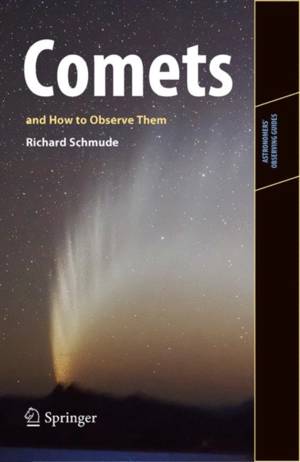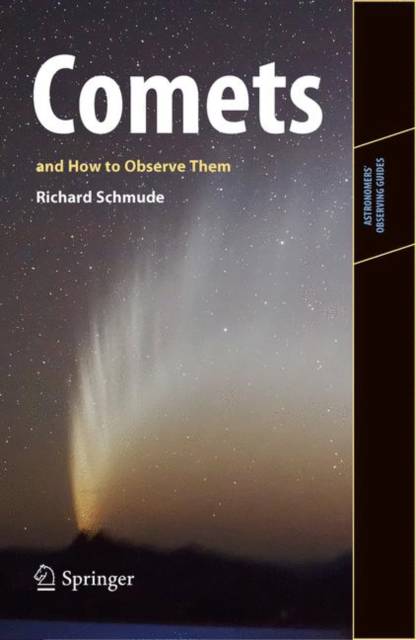
- Retrait gratuit dans votre magasin Club
- 7.000.000 titres dans notre catalogue
- Payer en toute sécurité
- Toujours un magasin près de chez vous
- Retrait gratuit dans votre magasin Club
- 7.000.0000 titres dans notre catalogue
- Payer en toute sécurité
- Toujours un magasin près de chez vous
Description
Comets have inspired wonder, excitement and even fear ever since they were first observed. But they are important members of the solar system, that contain material from early in the life of the system, held in deep-freeze. This makes them key in our understanding of the formation and evolution of many Solar System bodies.
Recent ground- and space-based observations have changed much in our understanding of comets. Comets, and How to Observe Them gives a summary of our current knowledge and describes how amateur astronomers can contribute to the body of scientific knowledge of comets. This book contains many practical examples of how to construct comet light-curves, measure how fast a comet's coma expands, and determine the rotation period of the nucleus. All these examples are illustrated with drawings and photographs.
Because of their unpredictable nature comets are always interesting and sometime spectacular objects to observe and image. The second part of the book therefore takes the reader through the key observing techniques that can be used with commercially available modern observing equipment, from basic observations to more scientific measurements.
Spécifications
Parties prenantes
- Auteur(s) :
- Editeur:
Contenu
- Nombre de pages :
- 254
- Langue:
- Anglais
- Collection :
Caractéristiques
- EAN:
- 9781441957894
- Date de parution :
- 21-09-10
- Format:
- Livre broché
- Format numérique:
- Trade paperback (VS)
- Dimensions :
- 152 mm x 229 mm
- Poids :
- 381 g

Les avis
Nous publions uniquement les avis qui respectent les conditions requises. Consultez nos conditions pour les avis.






